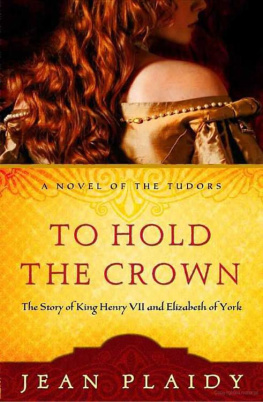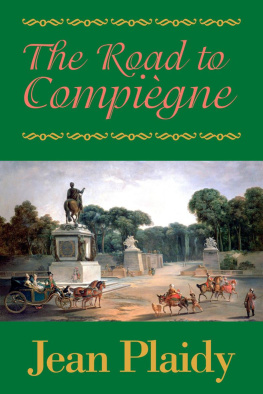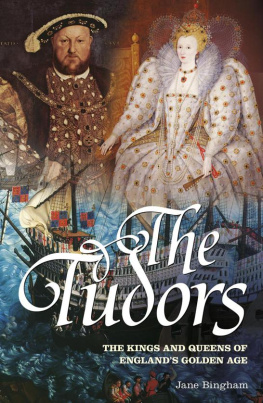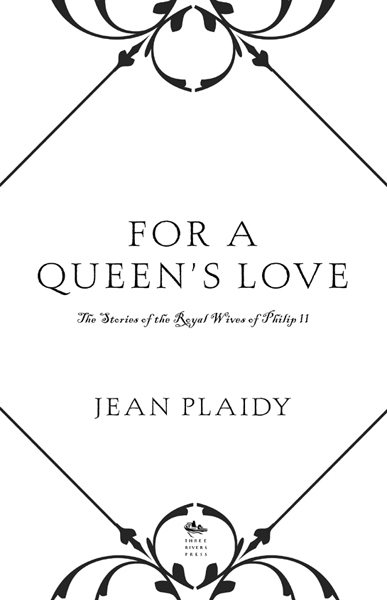Contents
Authors Note
I feel it is necessary to add a brief explanatory note when writing of Philip of Spain, whose character has given rise to so much controversy.
From the extensive research which I undertook before writing this book, it would appear that two different men are being dealt with, so diverse and opposite are the appraisals of him. One is a conscientious lover of duty, a worthy husband, and a devoted father; the other is a cold-blooded monster, completely devoid of human feeling, without charm, gloomy, morose, and moreover guilty of several murders including those of a wife and son.
I quote examples which come from two contemporaries: The French Ambassador, who witnessed his farewell to his dying wife, Elisabeth, said that her death was enough to break the heart of so good a husband as the King was to her. But William of Orange, on the other hand, charged Philip not only with the murder of his son Carlos, but of this same wife Elisabeth, which crime he declared the King committed because he wished to marry his niece Anne of Austria, the richest heiress in the world.
I have come to the conclusion that the various judgments of Philips character have been greatly influenced in each case by the religion of the chronicler; and it has been my aim to clear my mind of prejudice, to cut away religious bias, and to discover the real man.
I acknowledge the invaluable help I have had in this from many sources, the chief of which I detail below:
The Spanish Calendar of Letters and State Papers: English Affairs of the Reign of Elizabeth. Edited by Martin A. S. Hume, FR Hist S.
History of the Reign of Philip II, King of Spain. William H. Prescott.
Spain, Its Greatness and Decay (14791788). Cambridge Historical Series. By Martin A. S. Hume. Revived by Edward Armstrong.
Philip II of Spain. Martin A. S. Hume.
The Spanish Inquisition. Janet Gordon.
Spain. Henry Dwight Sedgwick.
The Dream of Philip. Edgar Maass.
Queens of Old Spain. Martin A. S. Hume.
Cardinal Ximenes and the Making of Spain. Reginald Merton.
Lives of the Queens of England. Agnes Strickland.
King, Queen, Jack. Milton Waldman.
The Pleasures of the Torture Chamber. John Swain.
Two English Queens and Philip. Martin A. S. Hume.
British History. John Wade.
J.P.
MARIA
MANOELA

ONE
C rowds had gathered early in the Plaza Mayor of the city of Valladolid on that May day. Peasants had come in from the slopes and valleys of the Sierra de Guadarrama, and wandering gypsies from as far south as Toledo. There were many vagabonds and beggars looking for easy pickings; they were sure they would find these in plenty, for all true Spaniards who could make the journey on this day would wish to be in the ancient capital of Castile.
In the shadow of San Pablo they stood, but it was not the beautiful faade with its memories of Torquemada that interested them; nor could the exquisite traceries and canopies of San Gregorio attract them at such a time. They chattered, breathing onion-tainted odors at one another, but they did not notice such odors, which were as common as the heat of the sun at noon, the smell of goats, or that of the blood of bulls.
How long? was the frequently uttered question. Surely her time is at hand. Will it be a son, think you? A prince for Spain?
They hoped so, for then the great bells of San Pablo and Santa Maria la Antigua would ring out; there would be rejoicing in the town; the best bulls would be brought forth, and there would be processions bright with the purple and gold of royalty. There would be free wine for the people. Girls with flowers in their hair would danceCastilians, Andalusians, and luscious gypsy girls. There would be feasting and merry-making throughout the country. That was what the birth of a prince would mean. So eagerly the people waited, asking one another: How long?

In the mansion of Don Bernardino de Pimentel, which was but a stones throw from the Church of San Pablo, a young man of twenty-seven sat alone in one of the great rooms. The room was dark and sparsely furnished, but the walls were hung with tapestry, some of which had been worked by Queen Isabella during her pregnancy.
The man stared moodily before him, his hands on his knees, his prominent lower lip jutting out as he stroked the hair on his chin. He was straining his ears for the cry of a child: he did not wish to go into his wifes chamber until he heard it. There would be women everywherehis wifes attendants, and the ladies of the court, as well as those who had come to assist at the birth. It was too important a moment for him to be there, for to these people he was a legend. He was the greatest monarch in the world; he was hard and ruthless, and men and women trembled before him. Now he felt as he did before a great battlestrong, unconquerable, ready to efface himself if necessary for the sake of victory. He, Charles the First of Spain and the Fifth of Germany, would not disturb those women at their all-important task, any more than he would disturb his soldiers in the process of ravishing a town they had won.
He knew how to act, and what was more important, when to act. He was not the most feared man in Christendom for nothing.
He prayed now for a sona prince, another such as himself, a great ruler who would combine the lusty strength of a Hapsburg with the subtlety of a Spaniard. He himself was all Flemish. He had been born in Flanders, and this land of dark, fierce-tempered people often seemed an alien land to him although he was its king. An accomplished linguist, able to converse in dialect with the subjects of his wide Empire, he spoke Castilian as a foreigner speaks it. He had inherited his love of good food from his Hapsburg ancestors; his fair, florid face was Hapsburg. He had great physical energy which he enjoyed expending on war, jousts, and plump German women.
He was, nevertheless, too clever to deceive himself. There were times when moods of melancholy would envelop him. Then he would remember his mother, Queen Juana, who lived out a poor mad existence in the Alczar of Tordesillas, refusing to change her filthy rags, letting her gray hair hang in verminous strands (unless the fancy took her to have it dressed with jewels), screaming that she would kill her faithless husband (who had been dead more than twenty years) unless he would give up his six newest mistresses. She had been called a witch; the Holy Inquisition would have taken her long ago and have put her to torture and death by the flames, but for the fact that she was the mother of the Emperor.
The mother of the Emperor a raving lunatic! Such thoughts must bring with them considerable uneasiness when, in a nearby apartment, that Emperors son was about to be born.
Moreover, the Emperors wife, Isabella, was his first cousin, and she came from the same tainted stock. Could the child escape its heritage? Could it be bodily strong and mentally strong?









